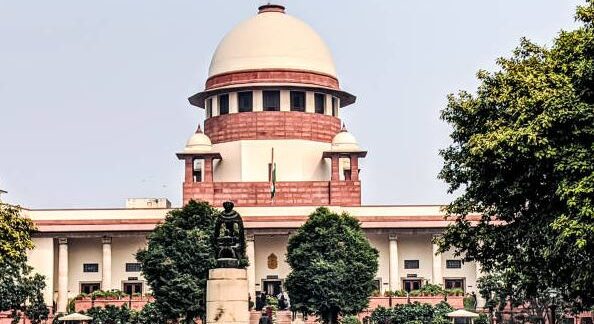Tag: supreme court

IBC Moratorium Does Not Shield Penalties Under Consumer Protection Act, Supreme Court Asserts
The Supreme Court of India has delivered a landmark judgment in the matter of Saranga Anilkumar Aggarwal vs Bhavesh Dhirajlal Sheth & Ors.[1] clarifying that the interim moratorium under the Insolvency and Bankruptcy Code (IBC)

Supreme Court Clarifies The Principles For Grant Of Pendente-Lite Interest
In a recent judgment[1], the Hon’ble Supreme Court (“SC”) has refused to grant pendente-lite interest to an aggrieved party despite holding that such party was entitled to refund on the amount forfeited due to non-performance

Rejection Of Plaints Cannot Be Permitted In Part Due To Purported Statutory Bar On Few Reliefs Being Sought: SC
The Hon’ble Supreme Court (“SC”) was recently occasioned to hold that a plaint cannot be rejected in part with respect to certain reliefs, in view of a statutory bar, when there are other reliefs being

High Court Cannot Re Interpret Evidence Under Article 226 In Absence Of Perversity Or Illegality: Supreme Court
The Hon’ble Supreme Court (“SC”) in a recent judgement of Ajay Singh v. Khacheru and Ors[1]. held that the Hon’ble High Courts should not reappreciate evidence unless in exceptional cases of perversity or illegality committed

Supreme Court: Lays down principles to invoke Section 53A of Transfer of Property Act, 1882
The Division Bench comprising of Justice J.B. Pardiwala and Justice R. Mahadevan of the Hon’ble Supreme Court (“SC”) in the case of, Giriyappa and Anr. v. Kamalamma and Ors[1], explained the conditions to invoke section

Litigant must explain sufficient cause which extended delay in filing appeal beyond the prescribed period of limitation: Supreme Court
The usual manner in which litigating parties seek to condone delays in filing various proceedings, and explaining the delay in filing such proceeding only after the prescribed period of limitation, has been deprecated by the
- Arbitration and Conciliation
- Banking and Finance
- Bankruptcy Code – Public Announcements
- Civil
- Commercial litigation
- Commercial/Corporate
- Competition act
- Criminal
- Cyber Law
- Debt Recovery
- Environment
- Family Law
- Food
- IL News
- Infrastructure
- Insolvency & Bankruptcy
- Insurance
- Intellectual Property Rights
- International
- Labour
- Law
- Medico-Legal
- Negotiable Instrument
- NRI Laws
- Policy
- Power
- Real Estate
- Tax

